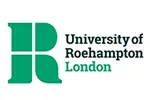We're moving! This site will be relocating to goingto.university in 2026. Please update your bookmarks to the new address.


| The award | How you will study | Study duration | Course start | Domestic course fees | International course fees |
|---|---|---|---|---|---|
| BSc (Hons) | Full-time | 3 years | September | GBP 9250 per year | GBP 13000 per year |
You will unlock the secrets of the animal kingdom, learn how animals survive in the wild, and understand how important they are to the world's ecosystems.
Our BSc Zoology degree explores the biology of a wide range of fascinating animals from the smallest organisms to birds and primates. This course covers the evolution, anatomy, physiology, behaviour and ecology of animals, along with how to care for and conserve them. You will gain an expert understanding of modern zoology in all its forms from conservation management to paleoanthropology to molecular biology. We place a strong emphasis on practical and field work with opportunities to work in the field, locally and overseas, to gain valuable skills required for your career.
Our Zoology degree is taught by leading biologists, biomedical scientists and anthropologists who have links to the Wetlands Centre in Barnes, international wildlife trusts, and citizen science projects such as the Riverfly Partnership. The degree is highly rated by students with 90% student satisfaction for teaching (National Student Survey 2016). The course is taught at Whitelands College with beautiful views overlooking nearby deer-filled Richmond Park, where you will conduct field study, learning about animal behaviour and river restoration. You will learn core laboratory skills such as titration, pipetting, and how to design and carry out laboratory experiments such as addressing climate change or identifying biological or physiological traits of animals.
You will undertake a conservation biology practical on London's Wimbledon Common and you can visit different field sites in Wales representing various UK habitats including river ecosystems, sand dunes, woodlands and rocky shores. This week-long trip will provide you with the perfect experience for work in either habitat or conversation management as you will gain field-based skills in ecology, animal behaviour, and animal physiology. You will survey the environment, take measurements, collect samples, perform biochemical analysis in practical laboratory work, and interpret your data creating reports and giving presentations on the results of your findings.
There is an optional and student-funded module, called 'Conservation, People and Wildlife: South African Field Course' which involves a two-week adventure to South Africa. You will learn directly from people living and working in conservation and related fields, and study South Africa's wildlife including elephants, lions and rhinos. It will give you a unique insight into the reality of conservation in Africa, and will provide you with a valuable experience of another culture and country.
Our Zoology tutors from the Department of Life Sciences are dedicated to understanding and improving the living world through ground-breaking advances in scientific research. They have discovered new chameleon species in Tanzania, reintroduced Iguanas back into the wild and have studied parkour athletes as a way to find out how apes travel effectively through tree-tops.
Below are some suggested courses at other providers that you may also be interested in:
Consider a Foundation or Pathway course at University of Roehampton to prepare for your chosen course:
If you do not meet the entry requirements for this course then consider one of these courses from another institution:
There are 141 other courses listed from University of Roehampton. A selection of these are displayed below:
Join the StudyLink email list and never miss a chance to turn your study abroad dreams into reality!

See other universities in London
Find out more about studying in the United Kingdom